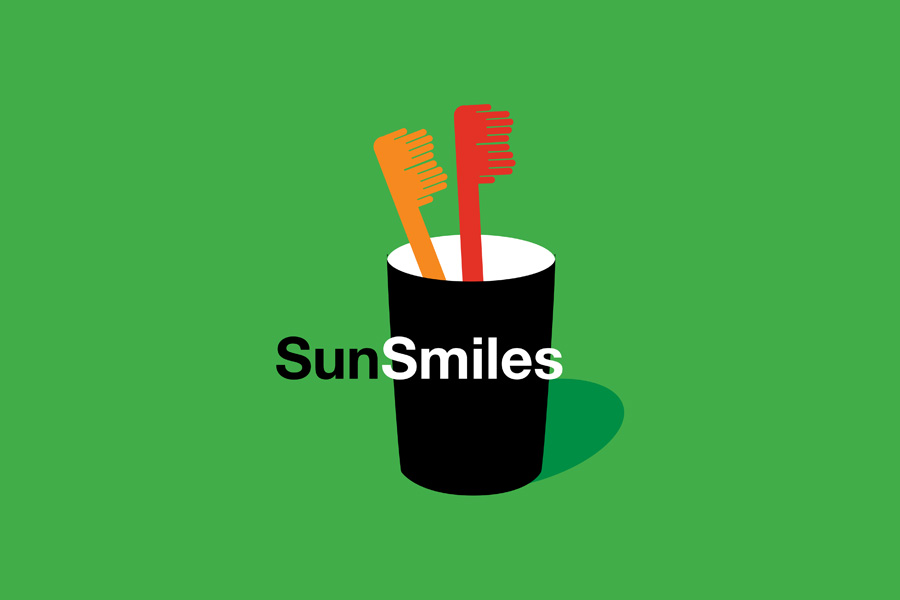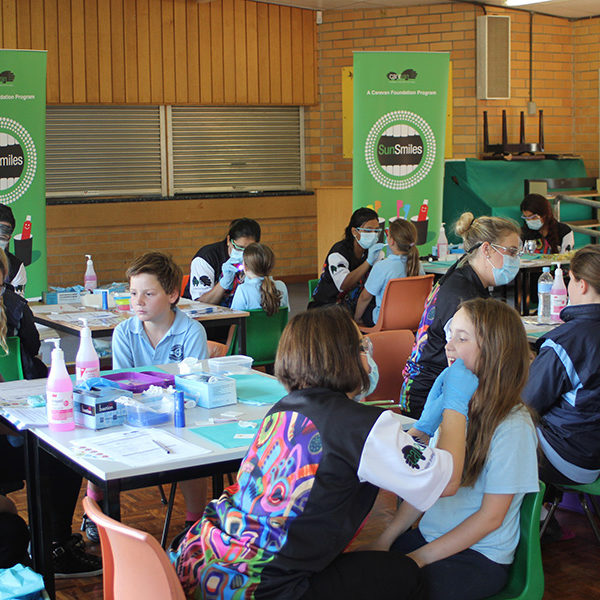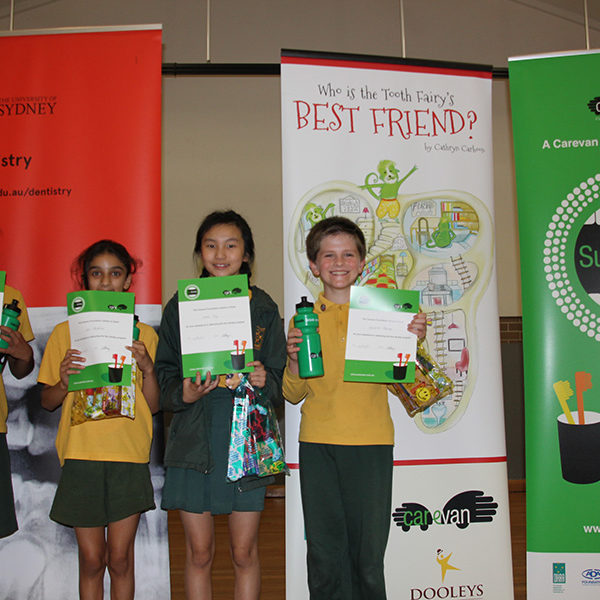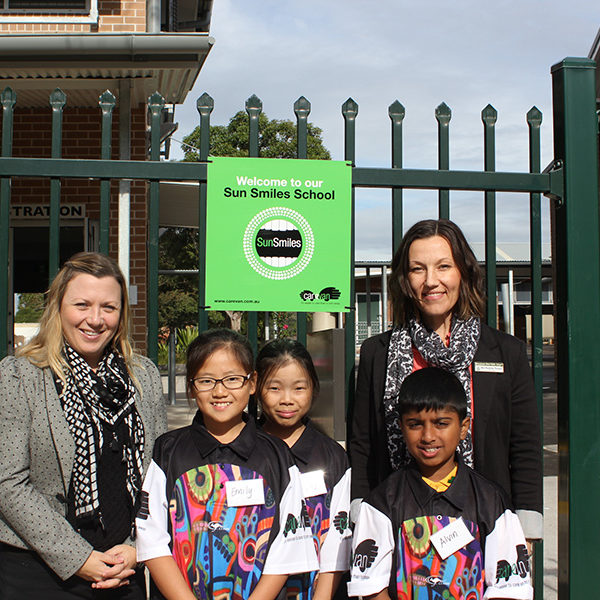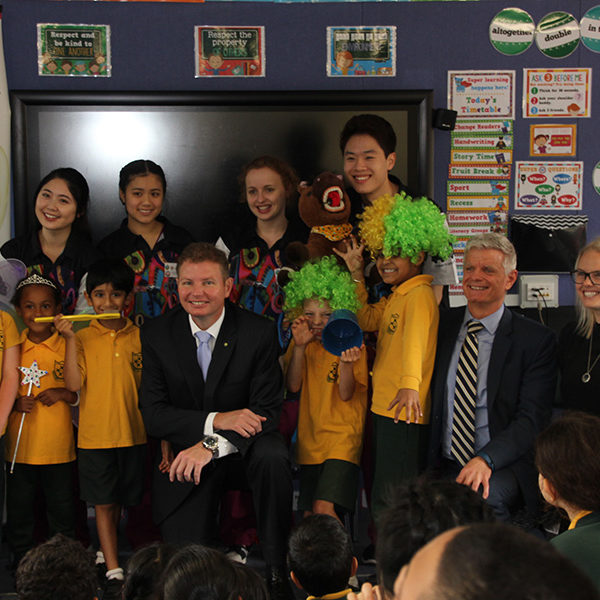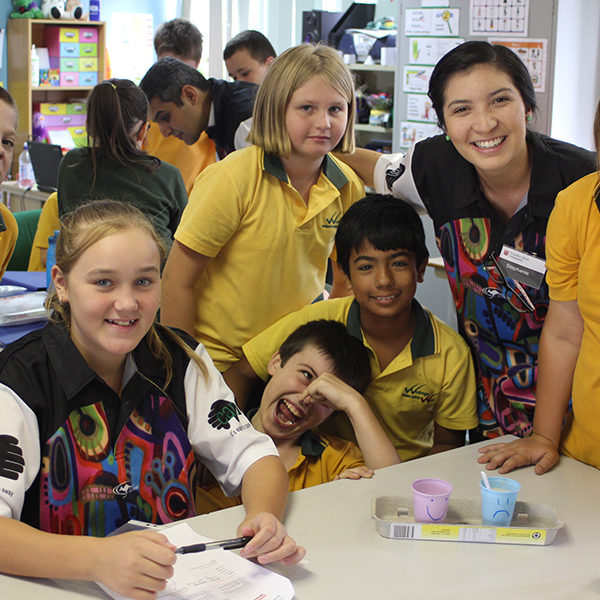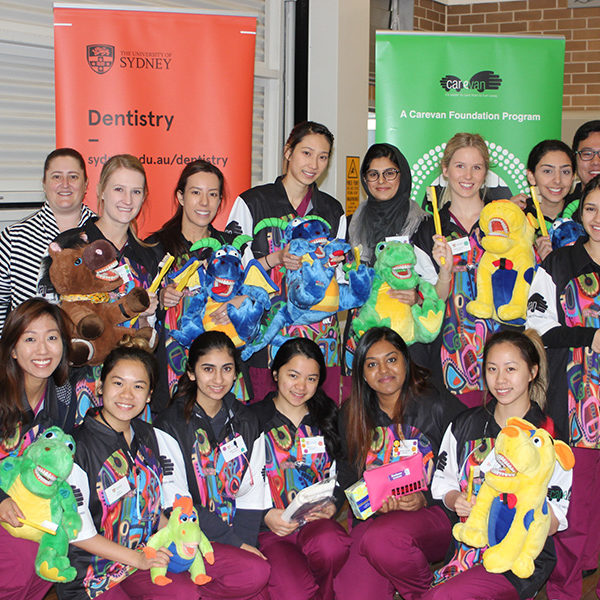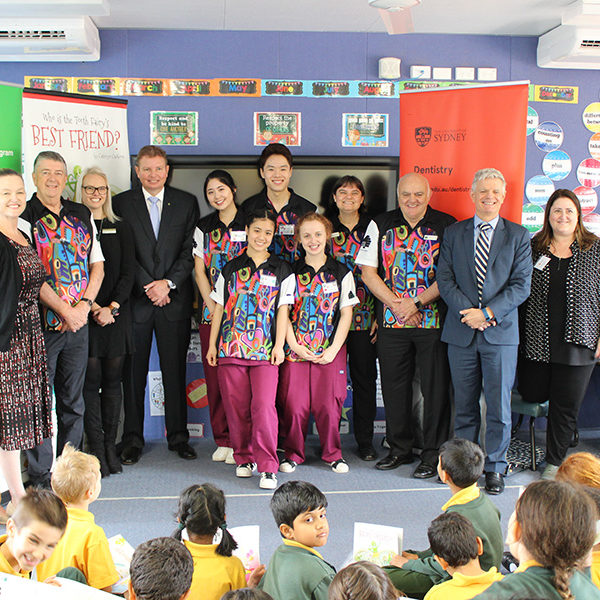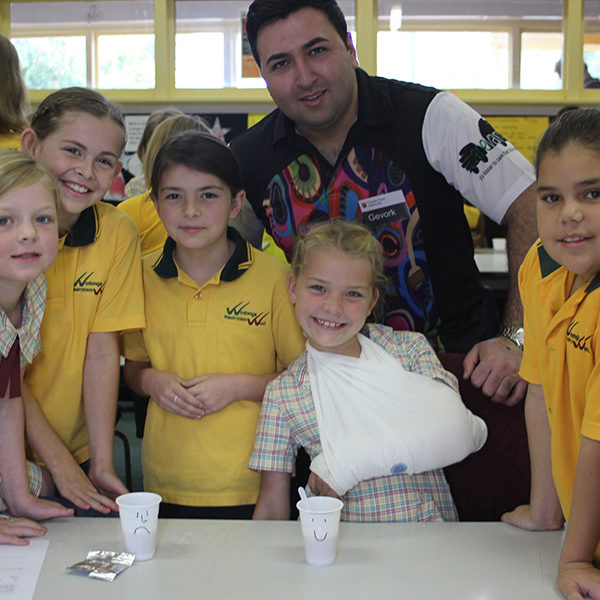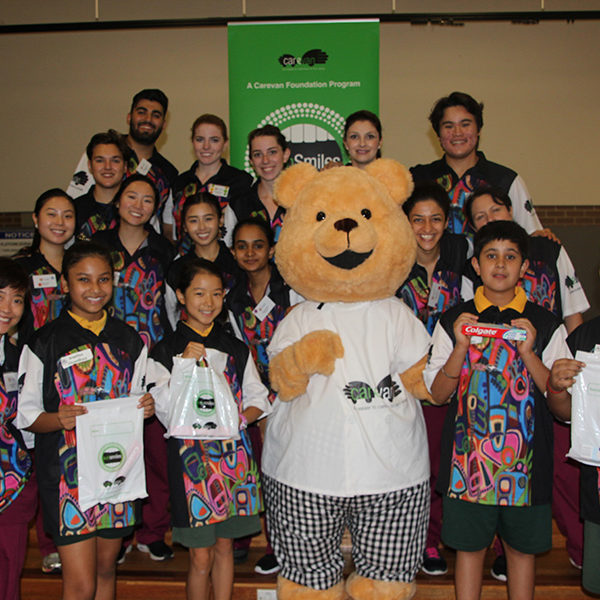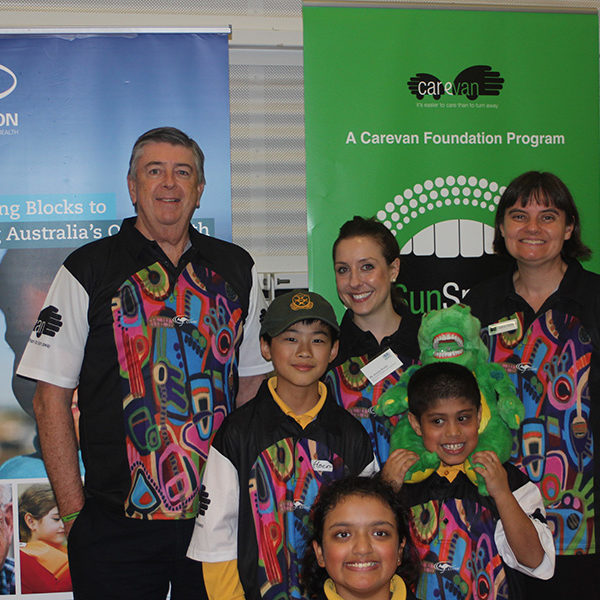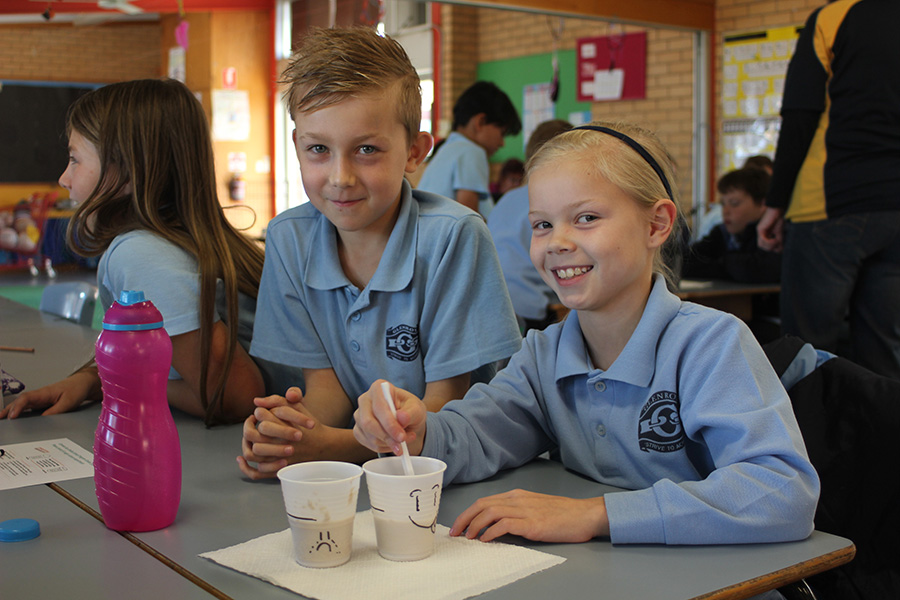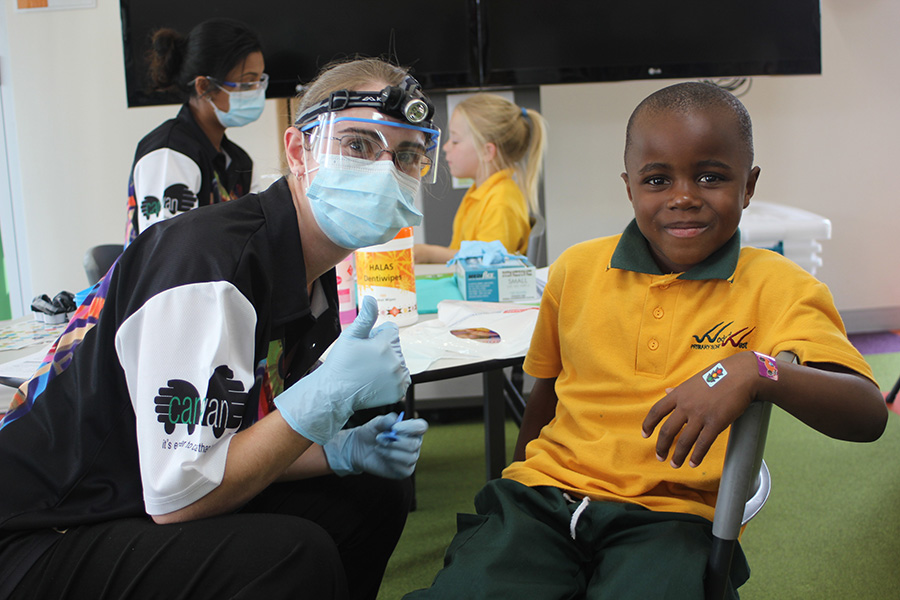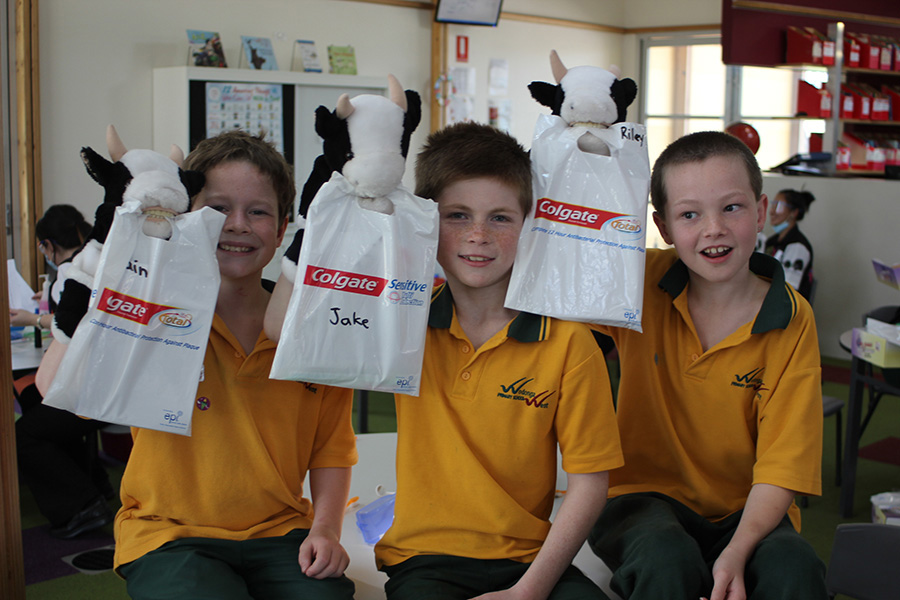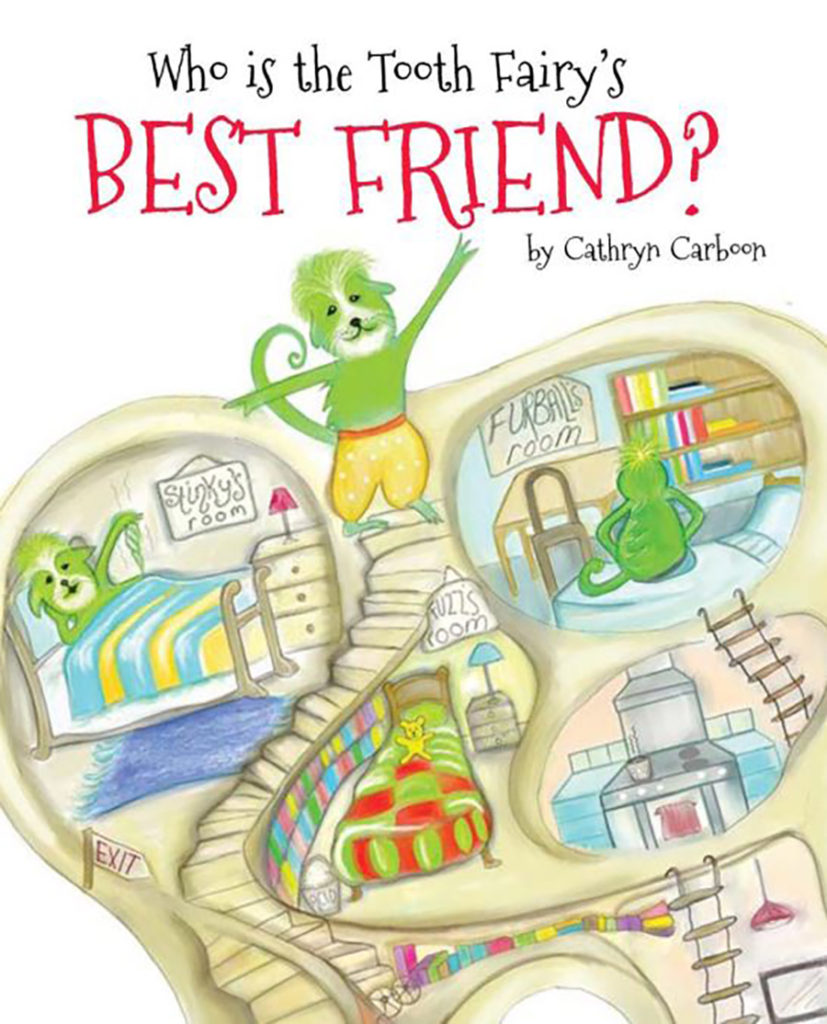The Carevan Sun Smiles program was launched in June 2012, out of a growing concern for the oral health of Australian pre-school and primary school children. The Sun Smiles program is delivered free to all schools, libraries and community groups who participate.
Aim
Sun Smiles aims to improve oral health literacy, oral hygiene skills and access to preventive dental care for socially and economically disadvantaged children in rural and urban Australia, to enable future improvements in their oral health.
Objectives
- Strengthen local community and oral health professional’s capacity to provide oral health promotion, oral health literacy and preventive dental care.
- Develop oral health promotion resources with a focus on oral health puppetry and literacy.
- Build partnerships with Australian Universities to support and develop Dentistry and Oral Health Therapy student’s clinical placements and community outreach experiences.
